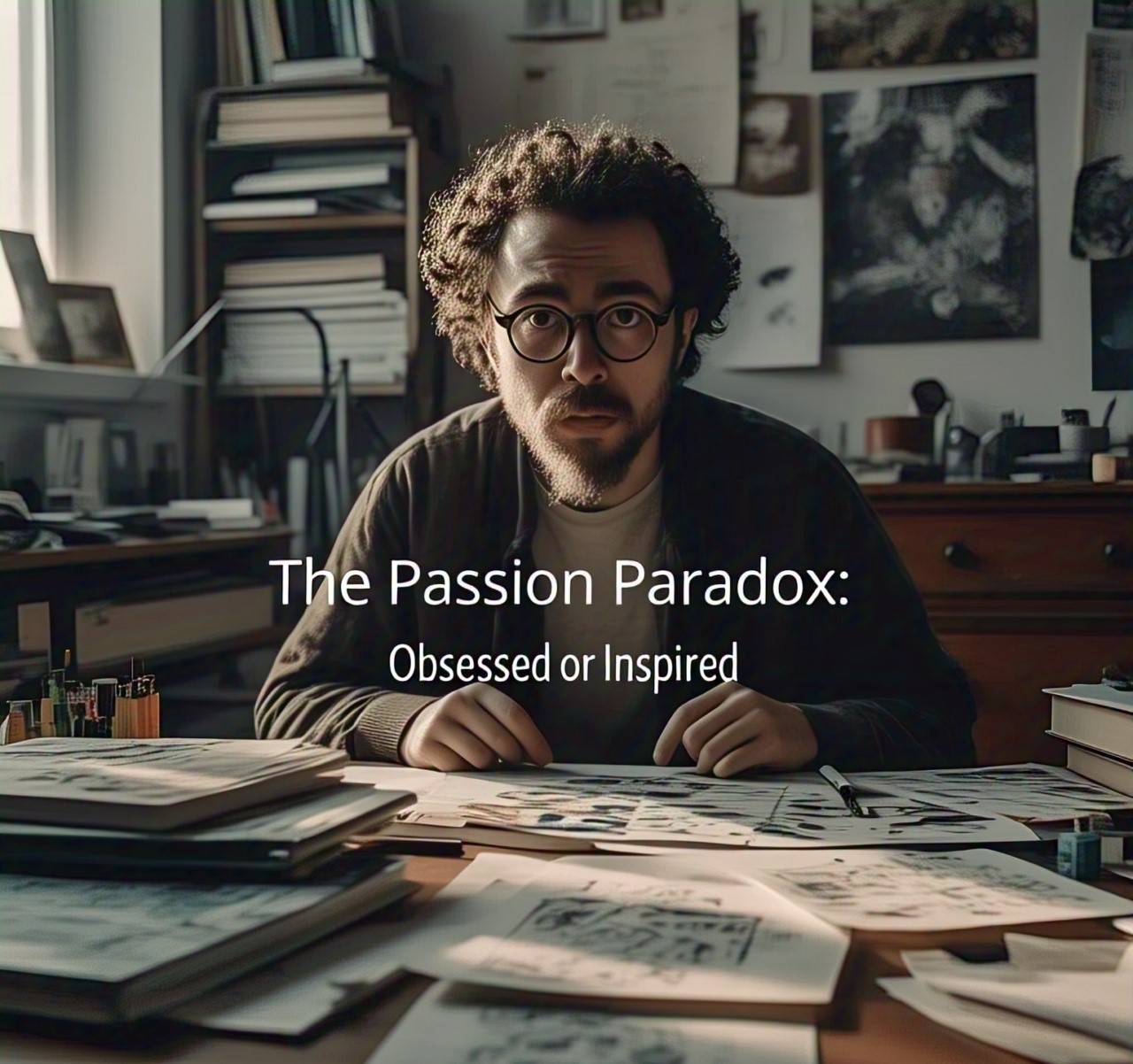Empathy is among the most powerful and beautiful forces that help maintain healthy relationships.
It provides the fundamentals of healthy relationships as it allows you to empathize with what others think, perceive things from their perspective, and put yourself in their shoes.
By gaining empathy, you can imagine yourself in another’s position and feel how they’re experiencing a feeling, but sometimes, people begin to practice toxic empathy to the point of offering emotional support and assistance to those around them and do not realize how it affects their mental health and well-being.
Toxic empathy does exist and can be detrimental to your mental well-being; the toxic effect of empathy is when you are prone to over-empathizing with other people, which can trigger feelings of anxiety, stress, depression, and exhaustion.
As ReelNat embarks on this journey of understanding and healing, we invite you to join us. Be prepared to uncover the dangers hidden in toxic compassion, which is the negative aspect of empathy, and equip yourself with the information and strategies to safeguard your mental well-being. Understanding will be your first move in the process of transformation.
Let’s explore the complexities of toxic empathy, and together, we’ll discover the right balance between self-preservation and compassion.
What is Toxic Empathy?
Toxic empathy happens when someone over-identifies with another’s emotions and immediately takes them to be their own. For instance, feeling anxious for a friend when they’re facing stress in their life can be normal, but if the anxiety prevents you from focusing on the tasks you have to accomplish, this is regarded as toxic empathy.
Another scenario is if you’re the person that all your family members turn to for help; this can make you feel overwhelmed by their concerns; this may leave you feeling drained and make you feel like you have no time left to take care of your own issues.
Toxic empathy happens in the state where you don’t simply reflect the feelings of others; you absorb them.
Signs of Toxic Empathy
Here are the signs of toxic empathy that you should be on the lookout for:
Empathizing to the Point of Exhaustion
A toxic empath always puts other people’s feelings above his own, which may leave him feeling emotionally drained.
Here are some questions you should ask yourself.
- Are you always carrying the weight of others’ emotions on your shoulders?
- Are you continually prioritizing the needs of others over your own?
If the answer to these questions is yes, you might empathize to the point of exhaustion. If you feel empathy to the point of exhaustion, it is essential to replenish and prioritize your emotional health; you can establish boundaries with others, engage in self-care, and seek out help from a trusted partner.
Taking on Other People’s Emotions
An empath who is toxic absorbs the emotions of others just like sponges, even if they are harmful. Remember that nobody is accountable for the feelings of others, and it’s appropriate to keep a distance from people who constantly cause negative energy in your life.
Imagine that you’re overwhelmed by emotions, and you are struggling to control and express your thoughts; if that’s the situation, you could feel overwhelmed by others’ emotions. In this case, you should be cautious about interacting with people who display toxic emotional behaviors, find safe outlets to release your feelings, and seek out support from an expert in mental health.
Feeling like a victim
The toxic empaths can feel as if they are victimized or exploited by people who display unhealthy emotional behavior, whereas the cause isn’t anyone else but them. They allow individuals to enter their own heads, resulting in feelings of being victimized and feeling powerless when confronted with other people’s emotional manipulation.
If you feel as if you’re a victim, remember that you’re in control and have the power to control your own life. It’s crucial to acknowledge these patterns and assert yourself; you don’t have to be an innocent victim. Taking control of your mental health is crucial to living a healthier life.
Struggling to Set Boundaries
Do you struggle to say “no” to people, even if it affects your mental and physical health? Establishing boundaries is vital to keeping healthy relationships. Likewise, it is essential to be able to express your wishes and limits clearly and with respect.
The idea of setting boundaries isn’t selfish, but caring for your emotional well-being is an important element of being able to be a good role model for other people. Toxic Empaths don’t establish boundaries and are constantly bombarded by emotional stimuli that cause anxiety and stress.
Trouble in expressing emotions
A toxic empath continuously struggles to express their own feelings and is always involved in the emotional state of other people; this may cause a feeling of emotional repression and an inability to regulate emotions because one is always being swept up in the feelings of other people.
It can be hard to strike the right balance, but it’s crucial to take time for your emotional process and convey your feelings healthily and appropriately. Being aware of other people’s emotions doesn’t mean that your own feelings are less valuable or vital.

A constant need for validation
Toxic Empaths depend on the validation of other people to feel comfortable about themselves, leaving them susceptible to the manipulative behavior of toxic people.
It’s normal to seek out validation and encouragement from other people, but it is important to recognize that you are valued and worthy of respect, no matter the opinions of others or what they believe. Developing confidence in self-worth and self-value will help lessen the requirement for external validation and let one prioritize one’s own needs.
Neglecting your own needs
Do you put the wants of others ahead of your own, resulting in depriving yourself of your own mental and emotional well-being? It’s crucial to put yourself first and be sure to take care of your needs, even if it requires saying “no” to others sometimes.
Toxic empaths do not remind themselves that they can’t pour from an empty cup, and taking care of yourself is a crucial part of being able to show up for others.
Overthinking and analyzing
Toxic empaths suffer from excessive thinking and overanalyzing; they tend to dwell on situations and continually analyze the behavior of others, seeking indications, causes, and validation of their own mood. While it is important to stay conscious of your surroundings, it’s also important to allow yourself to let go and rely on your own intuition and take the time to relax and focus on your needs and emotions.
The feeling of being responsible for the actions of others may affect one’s emotional and mental health well-being, including a feeling of stress, anxiety, and a sense of loss of control over one’s own life; this can lead to difficulties in forming healthy relationships because one’s own needs and feelings are constantly put below or off the to-do list.
Fear of confrontation
Empaths who are toxic avoid any confrontation, even if it involves letting others walk over them. Although conflict can be uncomfortable, defending yourself is essential. A healthy relationship is built on respect, communication, and compromise; everyone is entitled to speak up for themselves.
The fear of confrontation could negatively affect emotional and mental well-being, causing depression, anxiety, or feeling like you are trapped in unhealthful situations. If you are experiencing this problem, you must get rid of it immediately to ensure you don’t become an unhealthy empath.
You justify bad behavior
Empathy helps you perceive the feelings and external circumstances that lead people to behave as they do. If you notice that a manager gets a little irritable, you can see that they’re overwhelmed by their workload, which makes it easier to deal with and work with them, but making excuses for others’ behavior can lead to unhealthy relationships over time.
You struggle to complete everyday tasks
The emotional stress that comes from being too emotionally involved can affect your energy levels, making it difficult to stay focused on the daily tasks of your professional and personal life; this could make it hard to keep track of all the tasks you have to accomplish and can eventually result in burning out. If you’re suffering from emotional toxicity, you could be having trouble keeping up with your usual self-care routine as you view the well-being of others as more important than your own.
How to Protect Yourself From Toxic Empathy
If you’ve seen any of these signs, you should implement an empath-protection strategy to stop harmful empathy before it causes more damage.
If you’re not seeing any sign or signs of toxic emotion, it’s best to be aware and be prepared in case it does show up.
Learn to Separate Other People’s Problems From Your Own
Establishing these kinds of limits can be a beneficial method of providing help to others while taking responsibility for your own mental well-being. Be aware and learn to separate other people’s problems from yours.
Stop Emotional Hijacking
The human brain is connected to mirror neurons, which allow us to feel the emotions of other people; this is why we have the ability to feel empathy. It is important not to be physically stressed while listening to someone else complain about something that’s going on in their life. To prevent other feelings from taking over your own, be aware of the emotions that arise within you and then concentrate on relaxing your body. When your body starts to relax, try to let go of the emotion, and the feeling will likely diminish. It’s all about watching your reactions and then deciding to release them. They’re not yours to keep.
Form a “protective shield” to filter emotions
Imagine a shield, an imaginary shield surrounding you that blocks out negative emotions and only permits positive emotions to pass through. You could also make an affirmation to repeat to yourself whenever you’re feeling overwhelmed, for example, “I choose to feel only the positive emotions around me.”
Learn to say “no” without guilt
Establishing boundaries and being able to say “no” can be challenging for people who have toxic empathy, but it’s crucial to remember that putting your personal well-being first isn’t selfish. Learn to say “no” without feeling guilty, and be focused on expressing your needs and emotions respectfully and compassionately.
There’s power in the simple act of saying no; however, for many of us, it’s the most difficult word to use.
It’s a fact that you will never achieve your goals if you have too many obligations. You over-stretch yourself, and you won’t achieve anything, or at the very least in a timely manner, if you say “Yes” to every request. This is why being able to say “No” is an effective way to increase productivity.
Read More: The Power Of Saying “No” for a Less Stressful Life
Create your self-care routine
It could be anything from participating in a yoga class, walking through the countryside, or doing meditation exercises. Find activities that will help you to feel calm and recharge your energy.
Develop Healthy Relationships
In certain situations, people seek your guidance or vent their anger, but they may never allow you to discuss your thoughts with them; this isn’t an open relationship or an appropriate one. If you’re a toxic empath and wish to get rid of emotional toxicity, you have to create healthy relationships.
Another way to do this is by establishing boundaries that are healthy and clearly communicating your feelings about the behaviors that you observe in your relationship and what needs to be taken to address them.
Make sure that your relationships are reciprocal
In certain situations, people will only approach you to express their grievances and might not give you the same opportunity to express your feelings; that isn’t a reciprocal one. Remember that a positive relationship is “give and take.” If a relationship is one-sided, it means that only one person is getting their needs met. Be sure to establish boundaries early and be open about how you feel about it, and your partner should aid in resolving the issue.
Always strive to guard yourself from the negative effects of empathy by ensuring you set limits and do not let others’ problems hinder your way to inner peace.
Name the feeling
Sometimes, empathy can lead to confusion; you feel your stomach twitching or your body is pulse racing, but you can’t figure out the reason.
If this happens, try to find clarity. What is this feeling (or mixture of feelings)? Where do you feel these emotions within your body? What was the reason?
The ability to label your emotions using precise language can help you develop self-awareness and skills for emotional regulation. With a strong ability to regulate your emotions, you can manage the power of your emotions and reduce the intensity when you need to.
A certain amount of empathy can be harmful due to the fact that you aren’t able to clearly differentiate your emotions from that of the other person. If the self and other boundaries blur, you’re prone to emotional contagion rather than genuine empathy. As a result, you’re not in control of your emotions, and you risk getting them sucked into the feelings of others.
Being able to identify your feelings and gaining self-awareness can help you differentiate your emotions from those of others.
Practice mindfulness
The practice of mindfulness can assist you in resolving the emotional buildup that is caused by toxic empathy; you can also be aware to stop this from happening in the future.
For example, calming yourself by touching objects in the area, putting your toes on the floor, and looking at concrete things can help you connect to your body and create an emotional distance between yourself and others.
Another way to practice mindfulness is to pay attention to your breathing; it doesn’t require you to breathe in a specific method; just pay attention to the breaths you take in and exhale, and learn to mindfully control your breath.
Conscious breathing helps calm your nervous system; it assists in developing mental discipline and helps improve emotional control.
Take time off
Anything that separates you from the crowd can allow your empathy muscles to take some time to relax. The activities you can do alone vary for every person; you might choose to go on a walk, make crafts, or even go on an exercise in solitude.
If your workplace is toxic to your emotions and your energy reserves are depleted each and every day, a career or job change could be appropriate.
Develop compassion
Compassion is empathy and the desire to act; if you observe a dog that is shaking on the streets, it is possible that you feel empathy, but when you begin thinking of ways to help your dog, your empathy will transform into compassion.
In order to be compassionate, you must keep a distance from the suffering you observe (exercise “cognitive empathy”), which makes your brain interpret the issue as an energy-generating problem rather than a threat to your existence.
Self-compassion is a form of compassion as well. Be aware that no one -and not even you can carry the weight of this world onto their own shoulders. Show yourself the same kindness and care you show others.
As valuable as it is, your empathy isn’t the only thing you have to offer the world. The sharing of other positive characteristics could provide your empathy a needed break as you positively influence your environment in other ways.
Seek Support
If you’re constantly overwhelmed by feelings that aren’t yours, it’s advised to talk to an expert about it. The ability to listen to the problems of others and their needs may stress you out when you’re empathetic. Although it’s not wrong to be empathic, too much of it could cause you to become overtaken by the emotions of others and forget your own.
Be sure to learn how to manage your emotions to ensure you take good care of yourself and safeguard your mental well-being.
Read More: How to Protect Your Energy From Negativity
Read More: How to Build a Strong Character
Read More: How To Deal With Guilt and Regret: How to Forgive Yourself
When someone else’s mental health affects you, how do you cope with that condition? We are here to unravel the emotional stress of taking care of someone and a comprehensive guide to remaining resilient. Mental illness does not only affect those who have it. It can also disrupt the daily lives of their family members and loved ones. You may feel uneasy carrying on the responsibilities, and the confusion attached to it may have raised some questions. Examples;
- Can someone else’s mental health affect me?
- Can my partner’s mental health affect me?
- How do I deal with someone else’s mental health?
Whether it’s a family member, friend, partner, or colleague, witnessing someone close grapple with mental health challenges can have far-reaching consequences.
Read More: When Someone Else’s Mental Health Affects You
Conclusion
The adventure we’ve embarked upon in this article leads us on a journey through the complicated phase of empathy and emotions. We’ve seen how harmful toxic empathy, which is a seemingly contrary concept, can result in devastating and sometimes fatal consequences. The increased sensitivity to other people’s emotions can send us down a road of emotional exhaustion and depression when we’re not cautious.
But empathy on its own isn’t a problem; it’s a crucial element of our social fabric that allows us to feel deeply connected with other people and show kindness, but as with all things else in life, it’s important to find balance. A healthy amount of empathy helps us take care of other people while caring for ourselves.





